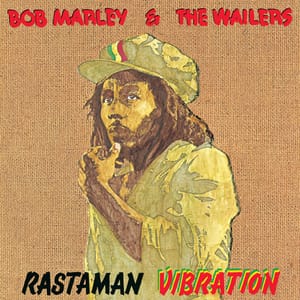Bob Marley & The Wailers War (1976)
Haile Selassie’s legacy is complex. The man who was the Emperor of Ethiopia from 1930 to 1974 is admired for his stance against fascism and for his efforts in modernizing his country. Yet Selassie’s reign faced criticism for autocratic and illiberal tendencies and failure to effectively address poverty and political freedoms.
Selassie’s public perception is further complicated by the Rastafarian movement, which emerged in Jamaica in the 1930s. Rastafarians consider the “King of Kings”—one of Selassie’s many glorifying nicknames—as a messianic figure who would lead people from Africa and of African descent to freedom. Selassie’s death in 1975 caused a veritable crisis of faith for many Rastafarians; some even left the movement.
Although converting to Ethiopian Orthodox Christianity shortly before his death, Bob Marley was a longtime member of the Rastafarian movement. In fact, Marley, who is considered the king of reggae, significantly contributed to Rastafari’s visibility outside of Jamaica.
One of Marley’s qualities was delivering powerful messages in a way that people would actually listen to. For example, by relying on the “joyful” sound of reggae music, he could reach big audiences, all while incorporating spiritual, social or political statements in his lyrics.
Today’s song “War” from Marley’s 1976 album Rastaman Vibration is a great example of this. The lyrics seem to be typical for Marley. However, he didn’t write most of it himself but extracted the content from a speech Selassie held in front of the United Nations in 1963. Selassie’s words certainly left their mark in the political realm, but only through Marley’s song did they reach a wider audience—both back in the day and in current times.

Start the conversation
Become a paid member of The Rest to gain access to the comments section.